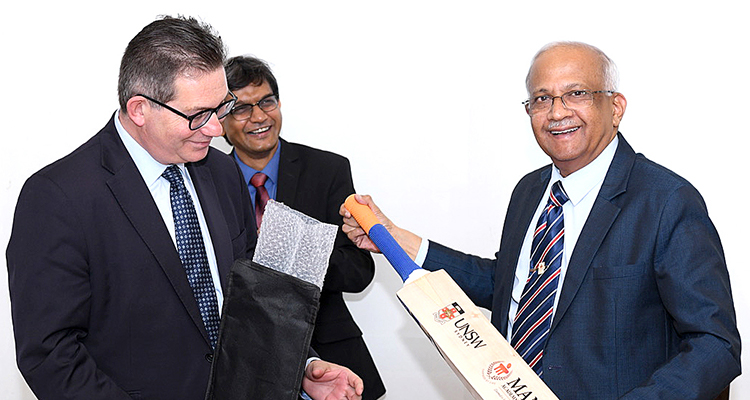
The UNSW-hosted GRIHA Summit in New Delhi focused on collaboration to tackle the grand challenges facing India and Australia.
The highly anticipated 11th Green Rating for Integrated Habitat Assessment (GRIHA) Summit was held in New Delhi in December 2019.
UNSW has co-hosted and co-designed this prestigious event with The Energy and Resources Institute (TERI) for a second year in a row.
Bringing together national and global leaders working in the field of sustainable habitats, experts from industry, government, academia, finance and policy, and consumers, the GRIHA Summit marked a significant contribution by UNSW and TERI towards transforming India’s sustainable development agenda.
UNSW’s involvement with the GRIHA Summit is part of its broader strategy to have a positive global impact through partnerships that transform society for the better – socially, culturally and economically. The UNSW delegation, led by President and Vice-Chancellor Professor Ian Jacobs and Dean of Built Environment Helen Lochhead, included world-leading researchers in the fields of clean energy and sustainable housing, photovoltaics, waste-water treatment and intelligent transport systems.
Under this year’s theme of ‘Approach to Integrated Sustainability’, UNSW led five plenary sessions at the GRIHA Summit, each highlighting a grand challenge – Rapid Urbanisation, Energy, Water, Waste and Governance.
In his opening address, the Vice-Chancellor said, “Brilliant minds working alone on these problems can achieve great things. Brilliant minds teams working together in partnership can achieve even more.”
On the sidelines of the GRIHA Summit, the Vice-Chancellor hosted a roundtable focused on research to 2040, with representatives from prominent Indian research institutions. The Vice-Chancellor has also signed a Memorandum of Understanding on behalf of the PLuS Alliance with the City of Pune to develop Smart City facilities that address pressing urbanisation challenges in one of the largest cities in India.
While in India, the Vice-Chancellor had the opportunity to visit the Manipal Academy of Higher Education (MAHE) for the first time, where UNSW has struck a landmark partnership to promote academic and educational exchange and joint research collaborations. Under the agreement, the two institutions have jointly committed $5 million in seed funding up to 2025 to deliver tangible outcomes and ensure the success of the partnership.
During the visit, the Vice-Chancellor delivered the inaugural Vice-Chancellor’s Oration on ‘Progress in screening for ovarian cancer’, and the Pro Vice-Chancellor, International, Laurie Pearcey, gave a talk on the Chinese political economy to students and staff of the Department of Geopolitics and International Relations at MAHE.
The Vice-Chancellor later joined the Dean of Medicine to meet with colleagues from MAHE’s School of Public Health and discuss a collaboration to conduct clinical trials in cervical cancer in the state of Karnataka.
UNSW and MAHE also announced the first round of the UNSW-MAHE Collaborative Research Seed Funding Grants, awarding 10 grants of $20,000 to joint recipients across a range of disciplines.
Reflecting on the announcement, Professor Jacobs said, “I am excited by the potential of the MAHE-UNSW partnership. These new grants will help academics at both universities bring the collaboration to life. They will link brilliant minds to jointly address complex and important global research challenges.”
The two institutions have also signed a Memorandum of Understanding to deliver UNSW’s Diplomas at MAHE.
- Log in to post comments
